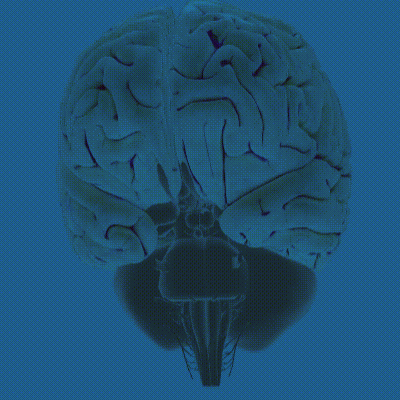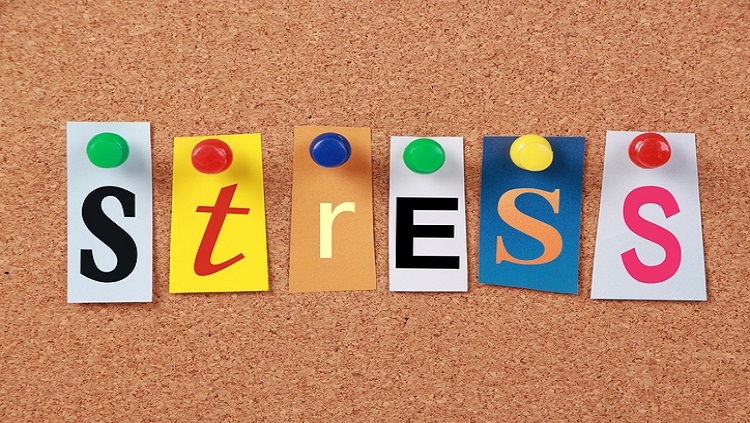What Is Stress Resilience and Can It Be Learned?
- Published10 Jul 2018
- Reviewed10 Jul 2018
- Author Rachel Kaufman
- Source BrainFacts/SfN

In some ways, today's world is more stressful than ever. Studies have backed up the idea that more Americans are worried, anxious, and, well — stressed. But not everyone copes with stress in the same way. Some people perform well under pressure, not just dealing with whatever's bugging them but excelling. Other people essentially curl into a ball.
To understand the differences in stress response, BrainFacts.org spoke with Jeremy Jamieson, a social psychophysiologist who studies responses to stress at the University of Rochester.
What is stress?
Stress is the nonspecific response of the body to any demand for change. That is, any internal or external factor, positive or negative, that disrupts equilibrium would be considered “stressful.” Although stress is unavoidable, it is not wholly negative or something to be unilaterally avoided. Stress can help us perform better, provide opportunities for growth, and protect against the damaging effects of catabolic hormones like adrenaline and cortisol. My research is rooted in the idea that stress is multifaceted, and can result in good or bad outcomes depending on context and mindset.
A fundamental principle of the biopsychosocial (BPS) model of challenge and threat is the idea that the way we think about situational demands and coping resources interact to elicit challenge- and threat-type responses in stressful situations. We experience challenges when resources are evaluated as exceeding demands — in other words, when we decide we have more than enough resources at our disposal to deal with a situation. Alternatively, threat manifests when we feel the demands of a situation outpace our resources. Both challenge and threat activate the sympathetic-adrenal-medullary system (SAM), which release hormones that increase heart rate and dilate blood vessels. Threat responses, however, not only elicit SAM activation but also strongly activate the hypothalamic pituitary adrenal (HPA) axis, which produces a prolonged stress response due to the longer half-life of cortisol (the end product of HPA activation).
When we talk about stress resilience, what do we mean?
I prefer to conceptualize “stress resilience” as effectively coping with stressors, and returning to equilibrium, or “homeostasis,” quickly after stress offset. However, I typically refer to effective coping as “stress optimization” rather than stress resilience. The term resilience implies a recovery from difficulties, and although recovering from stress after the offset is an important part of stress optimization, it does not capture the importance of active coping.
Generally, experiencing challenge responses as opposed to threat responses in stressful situations improves performance, as well as having benefits for short-term health. Thus, developing regulatory methods that promote challenge responses has been a goal for my lab. We try to help people think of the symptoms they experience during stressful situations (e.g., racing heart, sweaty palms, etc.) as a functional resource that can benefit psychological, biological, and performance and behavioral outcomes. Stress reappraisal is not aimed at eliminating or reducing stress — it does not encourage relaxation — but instead focuses on changing the type of stress response experienced (turning threat to challenge) by shifting the ratio of resources to demands.
Are some people 'naturally' better at handling stress? Why?
Although my lab typically studies how stress appraisals can be manipulated to improve active coping, there is absolutely variability in people’s appraisals processes (which also will change from situation to situation). Anecdotally, I’ve noticed that some participants in our studies have a resistant stress mindset. No matter what we tell them, these individuals believe stress is negative and is something to be avoided. However, some other groups of people, notably athletes and musicians, seem to intuitively understand that stress can be helpful, possibly because they have experience performing in competitive, evaluative stress contexts.
When coping with stress, it is important to remember that our biological stress systems do not have eyes or ears. The only way our stress response systems get information about the world is through the lens of perception. Shifting the perceptual lens can, therefore, produce “real” changes in our biological responses to stress. So, it is possible to change people's stress responses relatively quickly and easily if the correct perceptual processes are targeted in situationally appropriate ways.
This Ask an Expert was answered by Jeremy Jamieson as told to Rachel Kaufman for BrainFacts.org.
BrainFacts.org welcomes all your brain-related questions.
Every month, we choose one reader question and get an answer from a top neuroscientist. Always been curious about something?









